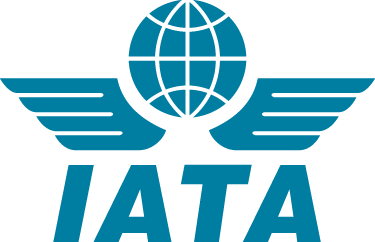Cost Saving
The meeting has been moved at the last minute, the ticket will have to be modified with payment of a hefty surcharge! The hotel with the agreement has no rooms available because of a trade fair event, a hotel without a discount agreement will have to be booked, a long way from the meeting venue: the trip is going to cost a lot more!
Unexpected events like these, together with a lack of advance planning of trips, are the main “enemies” to be fought in managing travel.
There is also a kind of conflict between the interests of the business traveller, in particular the “frequent traveller”, and the company. Business travellers during their journeys – in varying degrees – try to combine the travel needs with some small personal advantage, such as accumulating bonuses of extra flights and hotel stays to be exploited privately, booking hotels with extra services (wellness, central position etc.), renting cars trying to be given the latest model.
 The company has other priorities. The main problem in managing travel is succeeding in combining the optimisation of costs with the traveller’s comfort, trying to put him at his ease to operate well and be able to give his best during his time away and also of not lowering the reputation of the company. In some cases in fact the companies, in particular those with better known brands, in addition to employees’ comfort are also careful to make sure their staff use higher category services because also this factor communicates the strength of the company trademark.
The company has other priorities. The main problem in managing travel is succeeding in combining the optimisation of costs with the traveller’s comfort, trying to put him at his ease to operate well and be able to give his best during his time away and also of not lowering the reputation of the company. In some cases in fact the companies, in particular those with better known brands, in addition to employees’ comfort are also careful to make sure their staff use higher category services because also this factor communicates the strength of the company trademark.
Business travel management is today one of the areas among general expenditure where especially the medium to large sized companies and of international respire most focus their attention to limit costs and optimise the process.
To deal with these costs many companies have entrusted the job to our account manager.
This person, sometimes together with the client company’s travel manager, must know how to reconcile saving and comfort, also facing unpopularity with travellers because he sets the rules to be respected and decides, for example, the class of air and rail travel, the category of hotel (setting a daily maximum on expenses) or the car hire segment. He also maintains relations with the travel agency, sets the rules for booking by employees for single categories (e.g. flight / hotel by phone /email to the agency, trains and car hire personally on online portals etc.).
The trends
On the one hand the forecasts on a European level predict increases in air fares, hotel prices and car hire rates. To these basic increases are added increases in airport taxes to cover the structural costs envisaged for some hubs, e.g. Fiumicino.
Operating with due tactics and with a series of crossed activities involving all the chain (from the airline company to the agency down to the individual employee), considerable savings can be achieved.
 The flights
The flights
Air fares are calculated according to transport and airport costs and follow commercial logic, taking the market into account. Where competition is stronger the prices are lower, while where the air companies operate on the basis of agreements, the prices are higher.
There is not therefore a unit price per mile travelled and there is no precise relationship between distance and transport cost.
With appropriate negotiating techniques and tried and tested methodologies it is possible to obtain discounts of up to and over 60-70% on the basic fares, the so-called “IATA (International Air Transport Association) full fares”; this body sets standard maximum fares on a quarterly basis for each itinerary and class of service.
Hotels
Faced with a slight growth in the prices envisaged for hotels, the opportunity for the account manager will be to negotiate, in addition to the prices, additional services and benefits such as:
• provision of “last minute” rooms at a reduced rate
• possibility of late cancellation without penalty or with reduced penalty
• perpetual availability of rooms during all the working days in the year (including peak periods)
• free wifi, breakfast and parking
• discounted lunch/dinner packages
Trains
The entry of a new competitor in Italy on the high-speed lines has interrupted the monopoly of the State administrator. Although we cannot to date speak of a true liberalisation of the railway sector in Italy, given that the infrastructure is managed by Rfi – a company in the State Railways group – the arrival of the competition of NTV has nevertheless brought some advantages and improvements on the High Speed lines, which are also those used prevalently by business travellers.
There has been a positive effect in the reduction of fares, or rather in a greater subdivision of the price list, for example with the introduction of low cost fares, for long-term bookings on non-refundable tickets, and a greater differentiation in classes of service. On the other hand it has also improved the services, with the introduction by both organisations of additional services and classes with respect to the old division between first and second class, and a renovation of the trains themselves.




 Consultancy
Consultancy  Matitone Travel Srl - P.IVA 01767330994
Matitone Travel Srl - P.IVA 01767330994